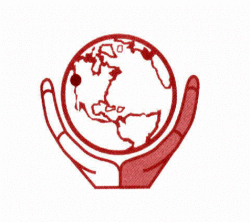Who We Are
The Seattle Human Services Coalition is a multi-racial, multi-cultural group of human service coalitions, agencies, programs and individuals committed to supporting Seattle-King County residents to build well-being. Together, we work to shape public policy that impacts such issues as homelessness, hunger, domestic violence, childcare, literacy, aging, disabilities, sexual assault, health care, employment, racial equity, and child/ youth development.
The Seattle Human Services Coalition strives to operate as an anti-racist coalition. We work to ensure that participation in SHSC is not restricted or denied due to race, color, national origin, language barrier, age, gender, income, education level, physical or mental disability, veteran status, religious practice, sexual orientation, cultural practice or by institutional racism.
We understand that the context in which we work is racist and that racism has a negative impact on our abilities to meet our basic human needs. We are working together to identify and eliminate that racism.
Vision
We envision a just and thriving community where it is an undeniable human right for every person to have access to the basic necessities as well as resources for human survival and advancement. We believe that the Seattle-King County community has adequate resources to sustain the basic human needs of each of its residents.
Mission
Our mission is to be an assertive, unified, and racially equitable voice shaping public policy to have a positive impact on the ability of Seattle-King county residents to reach their full potential.
History
In the early 1980’s, cuts at the federal level began to impact people on the local level in Seattle. Several groups of community health and human service providers began advocating to the City of Seattle for investments needed locally to help people meet their basic human needs. This group led a successful campaign for the first low-income housing levy in 1986 and then went on to form the Seattle Human Services Coalition in 1987 ensuring that there would always be a unified voice to advocate for meeting basic human needs. The City made its first investment in community-based direct human services in 1987 for $500,000. With steadfast advocacy and education, current annual funding is now over $50 million a year in general funds alone, plus locally levied funds. Persistent work by members led to this degree of local investment—found nowhere else across the country. Over two decades later the members of SHSC continue to carry that work forward. By being part of the Seattle Human Services Coalition you are cultivating both your organization, in order to better serve the community, and the common good of the community as a whole.
SHSC has broadened and deepened our impact over decades, but we all have stayed focused on our shared goal and vision to help our communities meet their basic human needs.
What we do
● Coordinate education and advocacy to support local budget and policy decisions that help people reach their full potential. SHSC members work together to monitor City policies, identify shared positions, and educate policy-makers on the impact of current issues such as public safety, racial equity, and funding priorities on our communities.
● Continue to build on the success of our wage equity campaign. SHSC secured funding from the City of Seattle to commission a study of nonprofit human service sector wages. The 2022 study from the UW School of Social Work found that King County human service workers are paid at least 37% less than workers with comparable skill sets in other industries. This data has sparked action at the City of Seattle, which in 2023 dedicated $5.1M in additional funding for wage increases. It also inspired King County to dedicate over $70M in additional workforce development funds over the next several years. We are grateful for the progress made and look forward to continuing to engage providers, funders, and community members on this topic
● Develop support for stable, adequate funding for human services. SHSC members connect with providers, allies, and local government officials to support increased local investment in community health and human services. Our members fight for the fair allocation of resources needed to support everyone in this great city
● Strengthen SHSC members’ abilities to work collaboratively. SHSC provides logistical and capacity support to its member coalitions. As a coalition of coalitions, SHSC strives to support each facet of the human service sector in addressing their unique needs and challenges. SHSC relies on funding and engagement from each of our member coalitions to be successful.
Milestones
The Agenda for a Just & Thriving Community - Seattle & King County can build a just and thriving community if we make it a community priority, and if we remove institutionalized barriers that keep this from occurring. The resources currently exist within our community to sustain the basic human needs of each of our community’s members if we choose to direct them towards that goal. Acting together and putting people first, we do have the power to reach our shared vision of a Just & Thriving Community.
The Agenda for a Just & Thriving Community (AJTC) goes beyond strategic or public policy planning: it is a process that defines and calls for the steps necessary to create a just and thriving community.
Learn more about the Vision for a Just and Thriving Community →
Creation of the 2020 Vision - in 1999-2001 coalition and community members began exploring the question "What would it take to meet basic human needs, including eliminating institutional racism, in King County by the year 2020?" This three year visioning process identified a broad but powerful shared goal that tied all of the diverse pieces of our community together.
Identifying Institutional Racism - The Identifying Institutional Racism (IDIR) Folio is a result of a collaborative commitment to eliminating racism. The IDIR Folio was created by human service providers to help an agency or program identify racism within the organization and provide tools toward eliminating it.

